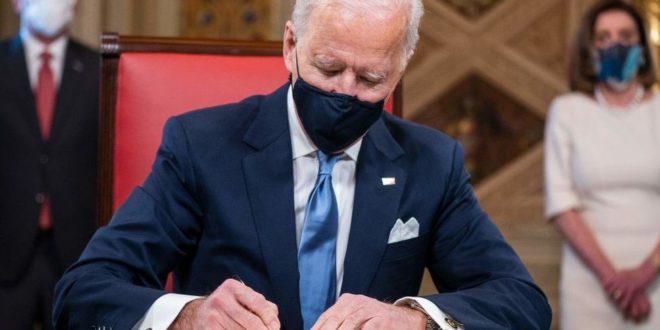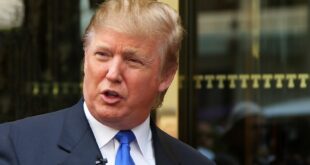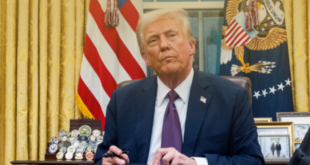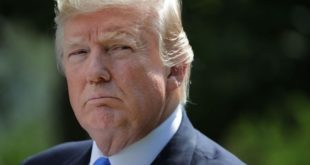President Joe Biden has said he is hopeful that America can “mark independence” from Covid-19 on 4 July if people get vaccinated.
In his first primetime address as president, Mr Biden said he would order states to make all adults eligible for vaccinations by 1 May.
Current measures prioritise people by age or health condition.
Mr Biden was speaking exactly a year to the day after the outbreak was classified a global pandemic.
Half a million Americans have since died – more than the death toll from World War One, World War Two, and the Vietnam War combined.
Schools have been closed, businesses shuttered and people kept apart.
In his speech, President Biden set a timetable for when small groups could potentially meet again.
“If we do this together, by 4 July, there is a good chance you, your family and friends can get together in your backyard or in your neighbourhood and have a cookout or a barbecue and celebrate Independence Day,” Mr Biden said.
He predicted that the country would be able to not only celebrate Independence Day but also “independence from this virus”.
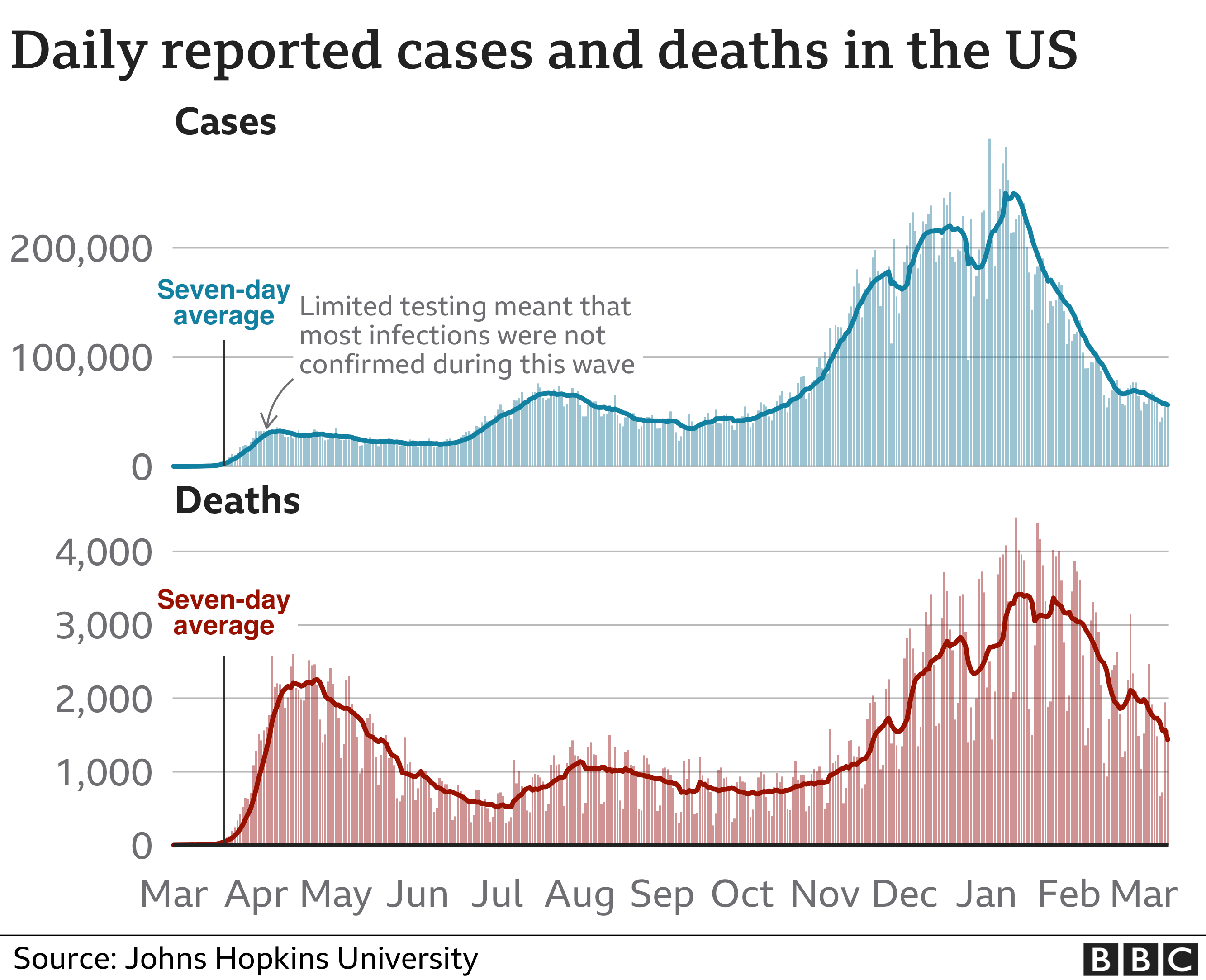

The US health system is complex and individual states are in charge of public health policy. While the federal government is responsible for getting the vaccine distributed to the states, it has largely relied on them to handle the distribution.
But as part of the plans to expand vaccinations, President Biden said the number of places where people could be immunised would be increased, with veterinarians and dentists among those also allowed to vaccinate people.
Mobile units will travel into local communities to provide vaccinations in underserved communities, he said.
Mr Biden previously set a target of 100 million vaccinations by his 100th day in office, but in his address on Thursday, he said this target would be reached on day 60.
Despite the good news, he warned that the “fight is far from over”. “This is not the time to let up,” he added.
He called on people to maintain social distancing measures, hand washing and wear a mask.
“Beating the virus and getting back to normal relies on national unity,” he said.
This time last year, there were 1,000 confirmed cases of Covid-19 in the US and about 30 people had died.
All US major sport was cancelled and then-President Donald Trump suspended travel from Europe, saying he hoped the US would be open again for Easter 2020. This prediction was repeatedly revised.
President Biden said last month he hoped that life would return to “normal” by Christmas 2021. Dr Anthony Fauci, the top US infectious diseases expert, described this timetable as “reasonable”.
The president’s caution is at odds with some states such as Texas and Mississippi, which are relaxing restrictions in order to boost their economies.
One year ago, the United States joined the world in facing a brutal truth. The coronavirus pandemic was going to fundamentally alter everyday life. Businesses shuttered. Citizens sheltered in their home. Life ground to a halt.
On Thursday night, in his first prime-time televised address to the nation, President Joe Biden said there was light at the end of the tunnel.
The big news from his speech was that all adult Americans would be eligible for a vaccine by the beginning of May – a pace, he boasted, that was the best in the world.
His most important message, however, may have been his urging that all Americans should get the jab when it’s their turn. “I know they’re safe,” he said.
A recent opinion poll showed that nearly half of Republicans are sceptical of the vaccine. If their doubt becomes inaction, Mr Biden’s promises – widespread school openings, an ability to travel and Independence Day celebrations – will go unrealised.
His speech was part promise, part warning. Get vaccinated, continue social distancing, wear masks – or else.
“America is coming back,” he said. But, he added, Americans needed to do their part.
Huge stimulus bill signed into law
Also on Thursday, the president signed a $1.9tn (£1.4tn) economic relief bill that marks an early legislative victory for his administration.
The bill includes $1,400 payments, an extension of jobless benefits, and a child tax credit that is expected to lift millions out of poverty. The stimulus payments are set to begin this month.
It also allocates $350bn to state and local governments, some $130bn to school reopening, $49bn for expanded Covid-19 testing and research, as well as $14bn for vaccine distribution.
Mr Biden said the relief package will rebuild “the backbone of this country”.
The spending bill, one of the largest in US history, passed Congress without a single Republican supporter.
Republicans objected to the bill’s price tag, calling for various elements of the package to be smaller. They suggested that stimulus cheques be given only to those who have lost income over the past year.
The pandemic has left more than 529,000 people dead in the US and infected over 29 million.
BBC.COM
 Home Of Ghana News Ghana News, Entertainment And More
Home Of Ghana News Ghana News, Entertainment And More
